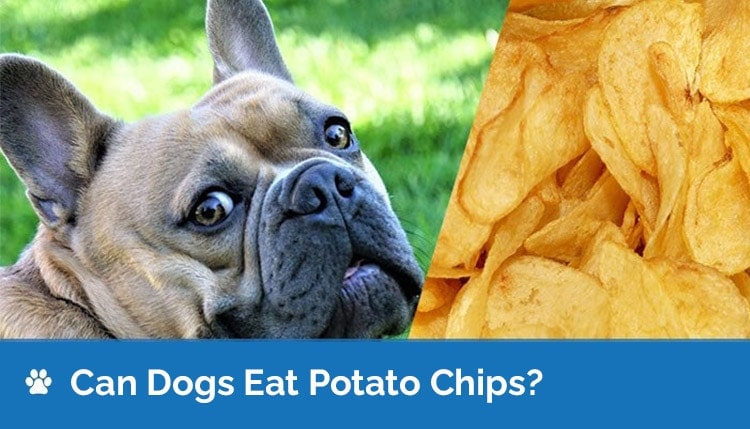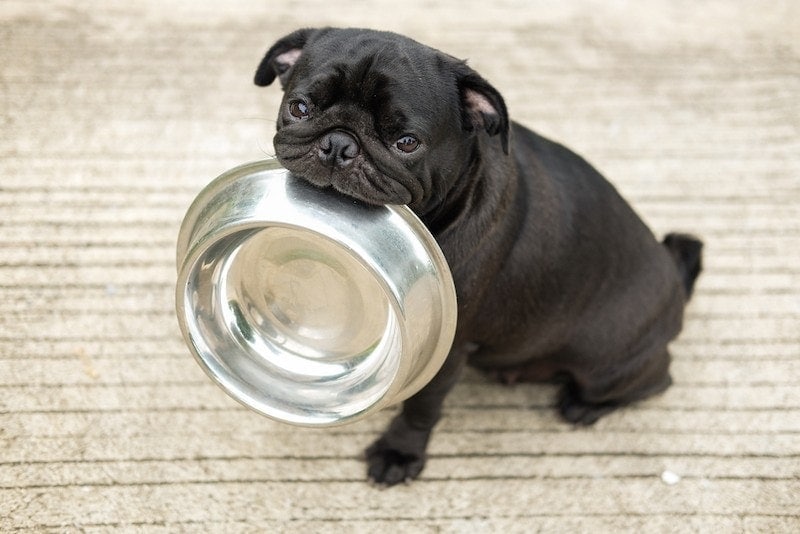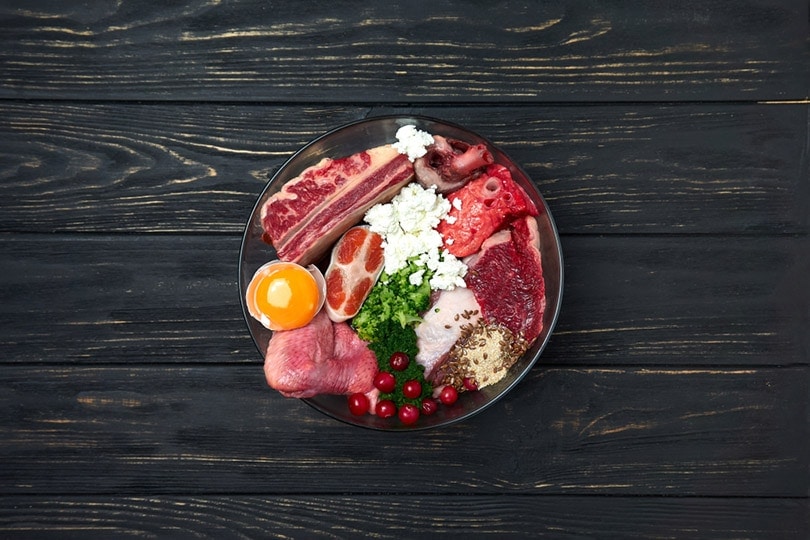Can Dogs Eat Cabbage? Vet Approved Facts & FAQ

Updated on

Do you often find your dog staring at you as you eat your dinner? It can be hard to resist such an expression, so you may be tempted to save a little treat for your dog.
But is it safe to do so if you’re eating cabbage? Is cabbage safe for dogs?
We’ll look at all the details in a moment, but the short answer is that a little bit of cabbage is fine for your dog to eat in moderation when prepared appropriately. It’s probably best to avoid giving them your leftovers, though, as they can include things like oil, garlic, and salt that aren’t so good for your pup.
How is cabbage good for dogs?
There are different ways that cabbage adds a little bit of nutritional benefit to your dog’s diet. However, these benefits are limited, as dogs should only have a small amount now and then, and if you are considering offering it more often, you should first speak to your vet. Fiber in cabbage can help your dog’s digestive system function correctly. Cabbage contains around 1.9 grams of fiber per 100 grams and only 23 calories when boiled. This makes it a good choice if you have an overweight dog, and you’re looking to bulk out their meals and help them feel full without piling on the calories.
Cabbage is also packed full of vitamins and minerals, including high levels of vitamins K and C. It also contains antioxidants that can help keep your dog healthy. Some research suggests that vitamin C may help reduce the risks of developing certain types of cancer in humans, but there is no evidence that these antioxidant and potential anti-cancer effects are true for dogs. On the other hand, healthy dogs produce their own vitamin C and do not have a dietary requirement for this vitamin, meaning supplementation may be harmful, rather than beneficial. On the other hand, if your dog is suffering from a chronic illness, they may benefit from vitamin C supplementation, according to your vet’s advice.
But before you go off and prepare a huge batch of cabbage for your dog, let’s take a look at what’s not so good about cabbage and why you might decide not to feed it to your dog after all.
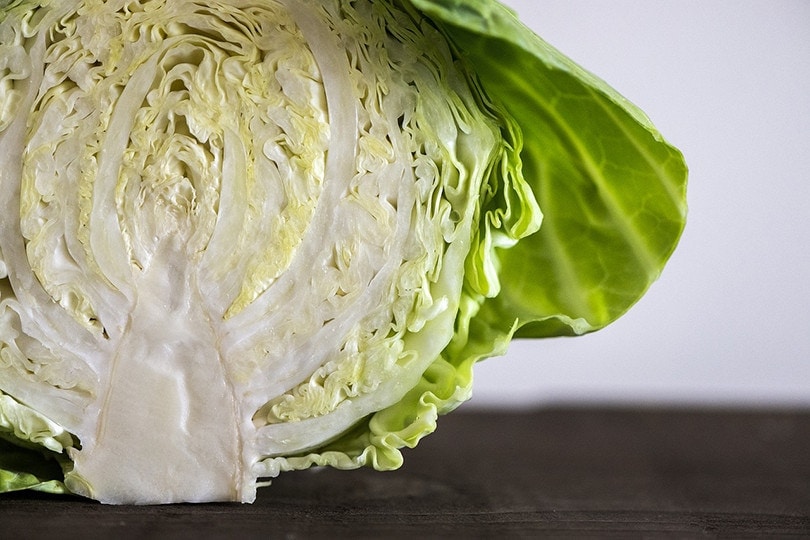
What’s bad about cabbage?
Too much cabbage can cause a build-up of gas within your dog’s digestive system. This can leave them feeling bloated or having diarrhea or a sore tummy. The other unpleasant side effect is your dog might get a great deal of flatulence and end up leaving stink bombs around your house.
Excessive gas is usually only a problem when you feed a large amount of cabbage in one go, so it’s best to stick to smaller portions of this vegetable.
What about leaving cabbage raw or cooking it up?
Is cooked or raw cabbage best?
If your dog seems to have developed a liking for cabbage, you may decide that you’d like to feed it to them more often in small amounts. Do so only after you have gotten a green light from your veterinarian. But what’s best, cooked or raw cabbage?
While a little raw cabbage isn’t going to do your dog any harm, if you’re going to feed it to your dog more regularly, then cooked cabbage is the better option.
Raw cabbage contains something called thiocyanate. If your dog eats a large amount of raw cabbage over a long period, the thiocyanate can impact their thyroid gland. Eventually, this could lead to hyperthyroidism, which will need veterinary attention but is highly unlikely to happen. It is only possible in dogs ingesting very large amounts of cabbage regularly.
The good news is that thiocyanate is partially deactivated when the cabbage is thoroughly cooked, so you can feed your dog cooked cabbage safely. Steaming or light cooking may actually increase the amounts of thiocyanate and isothiocyanate.
Of course, any cabbage that’s been prepared as part of a dish for us humans is best kept away from your dog. That includes the cabbage in coleslaw or fermented versions like sauerkraut or kimchi.
Cabbage should be offered in small portions, as larger pieces may pose a choking hazard for small dogs or those that tend to swallow their food whole. When raw, cabbage is more challenging for dogs to digest, and there is a greater risk of an upset stomach.
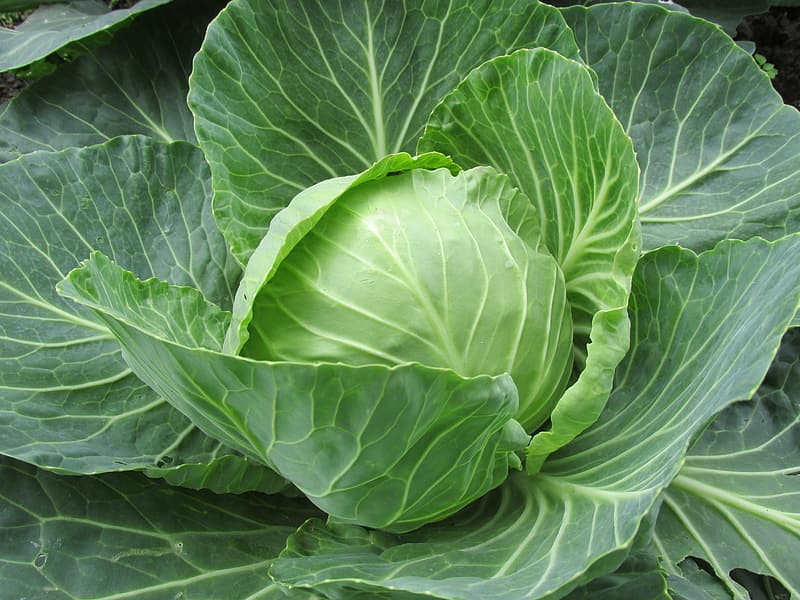
How to feed your dog cabbage
If you’ve decided to feed your pup cabbage more regularly in moderate amounts, it’s best to include it as part of their standard meals only after speaking to your vet. As mentioned, cabbage that’s been cooked and then left to cool is the best choice. Whether you want to steam or boil the cabbage is up to you, but don’t add any seasonings.
You can choose to feed your dog red, green, savoy, or any other type of cabbage! They all have similar levels of nutrients.
Cabbage leaves are best diced or sliced to make them easier for your dog to chew and swallow. Don’t feed your dog whole cooked cabbage leaves, as they can potentially cause a blockage if your dog doesn’t chew them first, and let’s be honest, most dogs love to gulp down their meals!
If you make your dog’s food at home, then you can simply mix the cabbage in or add it as a topper to your dog’s regular kibble or wet food.
As with any new feed, start by feeding only a small amount of cooked cabbage. Keep an eye on your dog after they’ve finished their meal and check that they seem comfortable and happy. Check with your vet how much to give, as it will depend on your dog’s size.
Your pup doesn’t need much cabbage every day, so it’s best to treat this as more of a treat than part of their main meal.
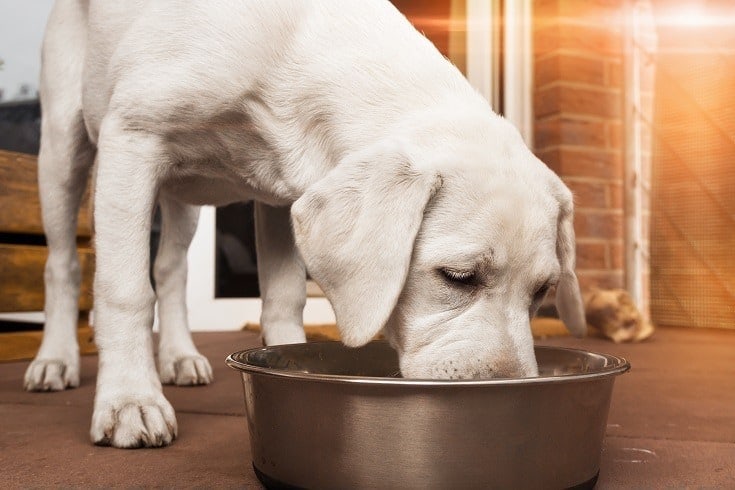
Wrapping it up
Cabbage, fed in moderation, can be a beneficial supplement to your dog’s diet.
If your pup seems to love this leafy vegetable, then there’s no reason that you can’t feed it to them as a small percentage of their weekly ration.
Just remember that the safest way to feed it is when it’s diced or chopped into small pieces before being cooked and served in moderation, based on your vet’s advice.
If you take the time to cook up cabbage and feed small quantities to your dog as the occasional treat alongside their regular food, we’re sure they’ll be grateful!
Featured Image Credit: Pixabay, Pickpik



